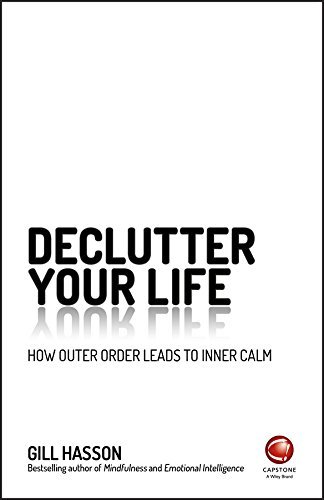You don’t have be a minimalist to appreciate a clutter-free life. I felt like this was a book I wrote for my husband to read - at least the first half of it. Gill Hasson perfectly captures how clutter makes me feel and why I love having a clutter-free home. Every thing in your house should have a place. If it doesn’t - you have too much stuff. Simple as that. I had to downsize twice before moving to Canada, and I’ve been careful about what I’ve bought since. My husband, on the other hand, has not had to downsize (I’m guessing ever). He has a shelf stuffed full of t-shirts that he hasn’t once touched in the past 3 years we’ve been married - an entire shelf. He also has 2 drawers of socks and all of our kitchen counters hold his piles of things as he doesn’t put stuff back where it belongs. It’s almost as if if I accidentally I leave out one thing cause I’m in a hurry, that gives him permission to pile things there. Don’t even get me started on what our place looks like when he decides to be crafty. Basically, my husband is the King of Clutter. A lot of the rules and strategies Hasson suggests (making “keep, maybe, don’t keep” piles, only decluttering a little section at a time, the “one in, one out” rule) are all tactics I utilize and have tried to get my husband to use, as well. From my own experience, the strategies and advice that Hasson captures in her book works. If only she knew how to get your spouse to do the same…
Readers Note: If you're in a rush, you can "skim" the book's content by simply reading the "In the Nutshell" sections at the end of the chapters. However, if you're reading C2C, I would suggest skipping these sections to keep the book from getting too repetitive.

